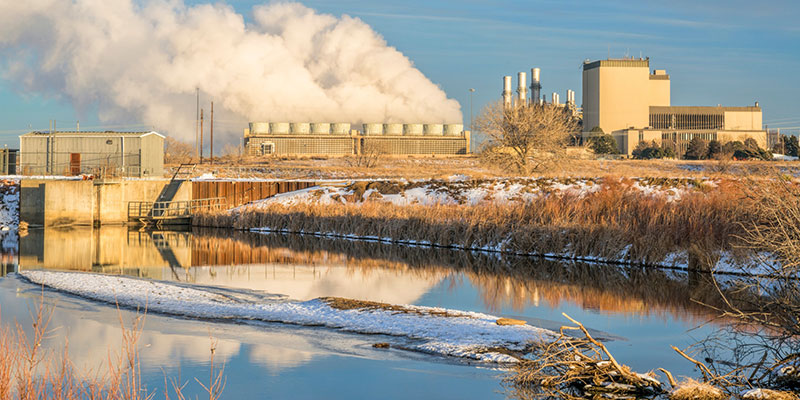Industrial Waste Water Treatment-- Tailored Solutions for Effective Wastewater Treatment
Industrial Waste Water Treatment-- Tailored Solutions for Effective Wastewater Treatment
Blog Article
Advancements and Advances in Hazardous Waste Water Therapy Technologies
The landscape of industrial wastewater treatment is going through a transformative shift, driven by developments that improve both efficiency and sustainability. As regulative standards develop, the combination of AI and maker discovering right into wastewater monitoring systems guarantees to simplify procedures and make sure conformity.
Summary of Waste Water Treatment Technologies
Wastewater treatment technologies incorporate a series of approaches developed to remove impurities from commercial effluents prior to their release right into the environment. These innovations are important for maintaining eco-friendly equilibrium and guaranteeing conformity with environmental regulations. The primary groups of wastewater therapy consist of physical, chemical, and organic methods, each serving distinct functions based upon the nature of the contaminants existing.

Biological treatment techniques use microbes to weaken raw material, making them particularly reliable for organic-rich effluents. Techniques like turned on sludge and biofilm activators harness the all-natural deterioration capacities of bacteria, bring about considerable decreases in biochemical oxygen demand (FIGURE)
Advanced Filtering Strategies
Advanced filtering methods represent an important development in the world of industrial wastewater treatment, improving the effectiveness of pollutant elimination procedures. Industrial Waste Water Treatment. These approaches encompass a variety of innovations, including microfiltration, ultrafiltration, nanofiltration, and reverse osmosis, which supply sequential obstacles for different fragment sizes and chemical frameworks
Microfiltration and ultrafiltration use membrane layer systems to eliminate put on hold solids, germs, and larger natural particles, improving the high quality of effluent before additional treatment. Nanofiltration connects the gap between ultrafiltration and reverse osmosis, properly eliminating divalent ions and organic compounds, hence minimizing the load on downstream procedures.
Reverse osmosis supplies the highest possible degree of purification by allowing just water and little particles to travel through its semi-permeable membrane layers, making it perfect for recovering high-grade water from industrial effluents. Recent improvements in membrane technology, including the development of even more long lasting and fouling-resistant materials, have significantly enhanced operational performance and lowered prices.
Including these innovative filtering strategies not only enhances the total treatment procedure but likewise adds to sustainability efforts by enabling water reuse and resource recuperation in commercial settings. (Industrial Waste Water Treatment)
Organic Therapy Developments

Furthermore, the growth of engineered organic systems, such as membrane bioreactors (MBRs), integrates biological treatment with innovative membrane filtering. This combination permits greater effluent quality and reduced footprint, making it ideal for space-constrained industrial facilities. Developments in genetically engineered bacteria have actually additionally emerged, improving the biodegradation of specific impurities, such as drugs and hefty metals, that are traditionally challenging to eliminate.
In addition, the implementation of bioaugmentation strategies, where useful microorganisms are introduced to enhance the existing organic therapy procedures, has actually revealed appealing results in improving therapy efficiency. These advancements jointly represent a pattern towards even more reliable and lasting biological therapy methodologies that can adjust visit site to the progressing intricacies of commercial wastewater streams. As industries remain to prioritize ecological compliance, these organic technologies will certainly play an important role in wastewater monitoring.

Resource Recovery Approaches
In industrial settings, the assimilation of source recuperation techniques has ended up being progressively crucial for enhancing sustainability and lessening waste. These techniques concentrate on removing important products and power from wastewater streams, consequently changing possible contaminants right into recyclable resources.
One famous approach is nutrient healing, where nitrogen and phosphorus, often existing in excess in wastewater, are caught and exchanged fertilizers. This not just minimizes ecological influences yet likewise provides a circular economy option for farming applications. Furthermore, modern technologies such as anaerobic food digestion enable the conversion of organic waste into biogas, a renewable resource source that can offset fossil gas use in commercial procedures.
Furthermore, advanced filtration and membrane technologies facilitate the recuperation of industrial byproducts such as salts and metals. These recouped products can be reintegrated right into production procedures, minimizing the need for virgin resources.
Future Fads in Drainage Administration
As industries progressively prioritize sustainability, the future of wastewater monitoring is set to go through significant transformations. Technological improvements, such as expert system and artificial intelligence, will certainly enable much more efficient monitoring and management of wastewater systems. These innovations can predict upkeep needs, optimize therapy processes, and boost decision-making, eventually lowering operational prices and environmental effect.
Additionally, the assimilation of circular economic climate principles will play a vital function in wastewater administration. Industries are anticipated to move in the direction of systems that not just deal with wastewater yet additionally recuperate important resources, such as nutrients, water, and energy. This change will minimize waste and promote the reuse of materials, lining up with international sustainability objectives.
Emerging treatment strategies, such as membrane bioreactors and progressed oxidation processes, will further enhance the effectiveness of wastewater treatment, allowing for better effluents ideal for reuse. In addition, regulatory frameworks are most likely to advance, emphasizing stricter requirements for wastewater discharge and encouraging industries to take on innovative treatment options.
Conclusion
In verdict, the advancement of commercial wastewater therapy modern technologies demonstrates a substantial change in the direction of enhanced efficiency and sustainability More hints (Industrial Waste Water Treatment). Advancements in advanced filtration strategies, organic therapies, and resource healing techniques highlight the industry's dedication to environmental stewardship.
The landscape of commercial wastewater therapy is undergoing a transformative shift, driven by developments that enhance both effectiveness and sustainability.Wastewater therapy modern technologies encompass a variety of techniques designed to remove pollutants from commercial effluents prior to their release right into the environment.Harnessing the power of biological procedures has actually led to considerable innovations in the treatment of industrial wastewater.In addition, the application of bioaugmentation methods, where useful germs are introduced click reference to boost the existing organic therapy procedures, has actually revealed appealing outcomes in boosting treatment performance. These developments collectively represent a pattern towards more lasting and efficient biological therapy methodologies that can adapt to the developing intricacies of commercial wastewater streams.
Report this page